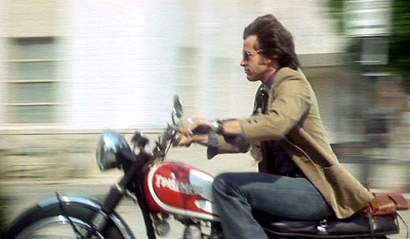 THE WORLD
THE WORLD In Which We View Scenes From The Drama Of Her Life In College
 Wednesday, March 21, 2012 at 11:00AM
Wednesday, March 21, 2012 at 11:00AM
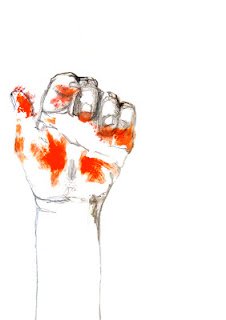
Crumb Trails
by JOANNA SWAN
Undergraduate education is the territory of inaugural munchies, an exercise in the unhealthy ethos of quick meals, be they Apollonian Ramen, Dionysiac Donettes or otherwise. It wasn't until after graduation that I instigated my snack food experimentation. One night, having grown weary of San Diego psych rock and spoken word, Galen and I tripped across El Cajon Boulevard to 7-11, and inexplicably became owners of "Takis," munch fare of similar breed as: Flamin' Hot Cheetos, Tapatio Doritos, Flamas Doritos, and other variations on a theme of red 40 and corn.
How deliciously they burned the tongue and gums, these indulgences, insipid in gout yet impossible to relinquish! Their stains on the digits and the lips surprised and alarmed me, and I stuck out my tongue in the bathroom mirror that following morning, ears no longer ringing with psychedelic music but still in possession of a stain to be reckoned with. No matter how the night's memories dwindled, the crimson crumbs held steadfast to the epidermis, a landmark of time that has passed.
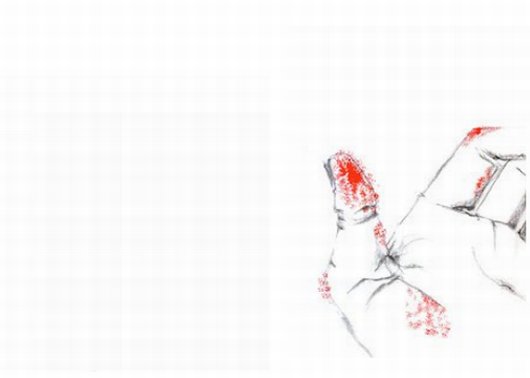
These Dorito fingers – can we call them Doringers? – hold you to your experiences indiscriminately, tenacious to the last scrub of the washcloth.
Though unrelated temporally they aren't dissimilar, these Doringers, from memories of my college career: a swath of life I find difficult to remember except as punctuated by landmarks and artifacts of growth and fear, these snippets all ultimately lined up on the shelf of remembrances, or – like the small orange New Testaments that those old men (who were they, anyway?) handed out after class in the Holmes Junior High School parking lot – buried in the strata of your childhood bedside table, waiting for you to find meaning within their constancy or else to discard them, wondering, "Why did I ever keep this?"

Famous for sweet onions, a feisty wine tourism industry, and a foundry frequented by Pop Artists and Carhardt-clad metalworkers, Walla Walla sits in the Columbia River Valley and is as halcyon and mysterious as Twin Peaks, population 51,201. Instead of Norma's Diner we had Clarette's and Tommy's Dutch Lunch. I only spent three years there, a paltry sum for a life nearly eight times that length. Of course, more prodigious things have seen completion in similar time (the First World War in four, Beethoven's 9th in two).

There it went, though – a logical progression, an unquestioned ramification for life in educated middle-classdom, where, in the sixth grade, Ms. Cook told us that we had better get to work on our Egyptian dioramas because after all, "in college there is homework every day [insert quantitative gesture to demonstrate quotidian homework demands in their physical manifestation]."
I'll blame flash drives and cloud hosting for my inability to remember what work amounted to such arduous piles. Nor can I remember being particularly morose about it. In fact I cannot now remember the stress levels encountered in college, though I think they were probably less than the sum total of stress I encountered whilst applying to college.
Selective memory eludes concise recounting. I did find a Design 101 assignment on the back of which I had explained to the grader, "I was drawing this while under intense stress and conflict, and it probably reflects that state of mind. There is a theme of tension and passive versus active forces," – more like notes from a Jungian's armchair than art studio work – "I was also reading about the circulation of blood, so that could have influenced this work as well."
"Everything you know will be challenged," President Bridges told us at commencement, and I tempered his words, meant for others but not for myself, with the self-assurance of an eighteen-year-old to whom "the weight of years" was still just a petty aphorism and "sage" just a plant that smelled like marijuana when it burned. How convenient for me, I thought, that a 23-year-old boyfriend back at home and a longstanding tradition of scholarship precluded these foibles of higher education. One long-distance breakup, myriad crepuscular study scrambles, and fifteen pounds later, I'd no doubt forgotten Mr. President's words but was treated to an almost Zen-like ego raze; as if all I thought I knew was tossed into an industrial-strength dryer and desiccated until it was uncomfortably hidebound and of questionable worth.
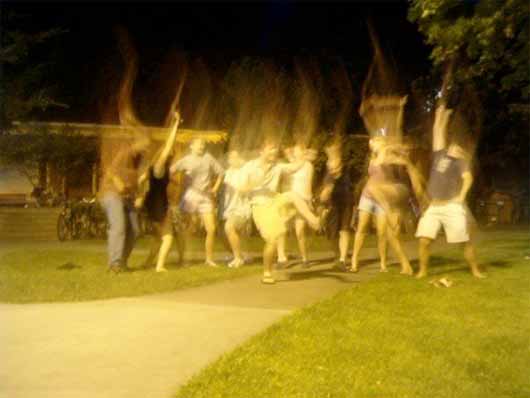
Of course, I came to Whitman with my specialties. I could conjure Chopin's Revolutionary etude and graft roses and recite choice Cummings tidbits, but around me were folks who'd started nonprofits, taken high school classes like "The World in Pieces: Cinema, Poetry, and the Aesthetics of Fragmentation," knew European history beyond Franz Ferdinand's significance, and could enumerate certain Best New Music reviews from 2007 on.
By grace of cripplingly low confidence or fierce survivalistic competitiveness or both, I quickly lost illusions that I was "special" or "smart" or "Gifted and Talented." Surprised (as I am, frequently) by my intellectual untenability, I engaged in what a psychologist might perhaps call Maladaptive Coping. No one ever told me "this essay's horseshit" or "you're a horrible painter" but I made sure to, in Puritannical frenzies of self-revision or flagellation or both.
Also, I dozed off in Geology class, a victim of prodigious early-morning donuts and coffee – my preferred distractions. The shale and Missoula floods fascinated me, but more consistent was the affair with Halls Prentiss and Jewett, the lands of free-flowing soymilk, ladlefuls of blueberries and vegan waffle batter.
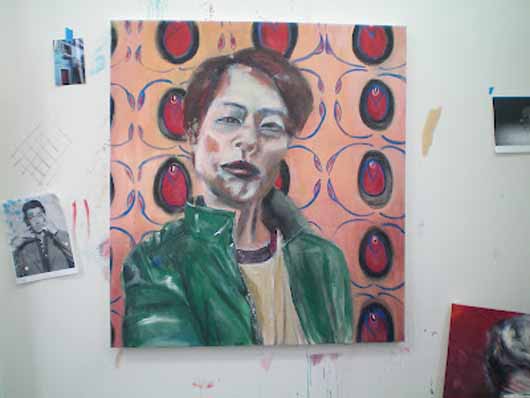
As we first embarked on what has to have been the most leisurely chapter of our relationship, Galen and I would – at that point, weaned from dormitory life and the fount of unfettered food access – sneak into those hallowed halls of all-you-can-eat populated by freshman seated in strange conglomerations, and visiting students with their attentive and resigned parents in tow. Making good on tuition dollars measured in bacon and eggs, we sat luxuriating in our bleary-eyed class-less mornings – Galen healing headaches with electric-blue Powerade and I mentally gathering the facts and figures of the man across from me with the meticulousness of a researcher – unaware of that frustrating impermanence of a relationship's inception, more delicate and weightless than the plum blossoms blown by Berkeley's February breeze.
Growing up in Davis, where the meanderings of 30,000 UC students (some of whom had little compunction about bicycling into traffic or asking a 13-year-old shopping at Tower Records whether she preferred to "spit or swallow") caused frequent consternation, I found it equally strange to be on the other side of the town-grown coin.
I never thought of college as an ivory tower, though many classes centered around critiques of Gazes, Biases, Frames, Interpretations. Once, at a themed party, someone unfortunately arrived garbed in a "Survivor" costume (read: equatorial face paint in the vein of Survivor: Africa, Survivor: South Pacific, or Survivor: Redemption Island.) Campus outcry quickly led to annual Symposia on the insidiousness of prejudice and stereotype.
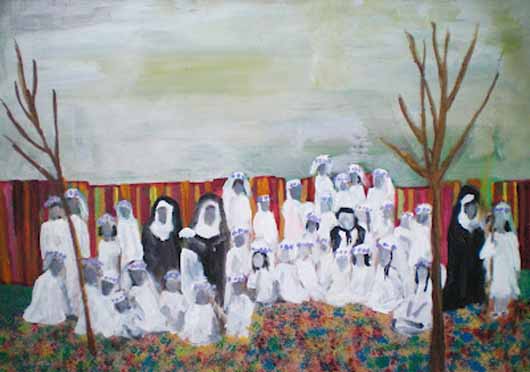
Worthy discussions that excited a deep respect for Arendt and a love/hate relationship with Paul Gauguin nevertheless led me to dead ends creatively, as if anywhere I turned there were more thoughts to process, dissertations to untangle, theses to glean – where can inspiration grow when it is firmly capped by pre-existing pavements of cultural context and critical theory? The laughing bald head of Monsieur Michel F. found my work as stifled as the Victorian age, while Kandinsky's eye perceived my paintings to be dull, muddier than an out-of-tune choir.
Is our ivory tower where we hide when we are unable to face what academia distracts us from? Or is it guilt – perforating my hermitage as I sit, unsure what to put my liberal-arts-educated energies into and feeling the weight of my years, while the young vagrant outside ties his great heaving sacks of recyclables and curses quietly to himself, glancing every so often at the passing cars (perhaps with the same self-conscious embarrassment I felt when my mother and I would go scavenging for roadside walnuts or fruit) – that drives our buttressing?
If college is where ivory towers are built, mine grew privacy walls to protect me from the world's banalities and mundane atrocities: rent checks, Social Security, internet providers, mind-dulling métiers – compromises that faire passer la vie.
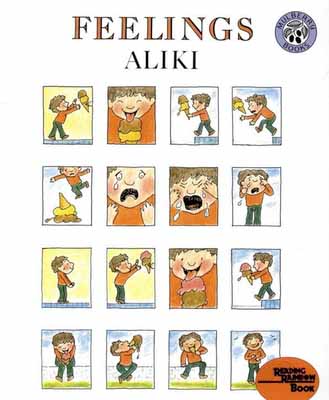
In childhood, I began to imbue objects with sentimental weight, that I may later conjure memory of time past. First, I cried along with the protagonist of Aliki's Feelings over spilt ice cream – less consolable than he, who would smilingly soon receive a replacement cone. Later, my mother would send me care packages filled with strange and novel offerings: basil seeds, homegrown pomegranates, cards featuring cutouts from expired bird calendars, Sees Candy tins to fete various holidays. These tins especially plucked my heartstrings after the last Scotchmallow Egg was polished off, such that I maintain a small collection of them. Artifacts of love, they prove that I'll never fully attain the minimalism I lust after.
At any rate, place, like confection canister, remains stoic and silent. In the seasonal confusion of the Bay Area climate, where Japanese maples hold their ruddy leaves till March, impervious to the white fragrance of spring's floreted buds, I find myself pining over the delineated year in Walla Walla, its seasons measured quadratically with the first snow, blushes of warmth in autumn, croci all violet and hardy through the hoarfrost in spring.
Like the blurry fondness of a vacation past, I miss my college, as if it would or could miss me back; the latter I know not to be the case because if it is anything like revisiting the hallowed halls of high school, nothing is left but flashes and sound bytes flushed through the sieve of memory. The halls repudiate their former associate with a cold stoic necessity, for the fledgling who tripped so enthusiastically from the nest may never return to roost there again.
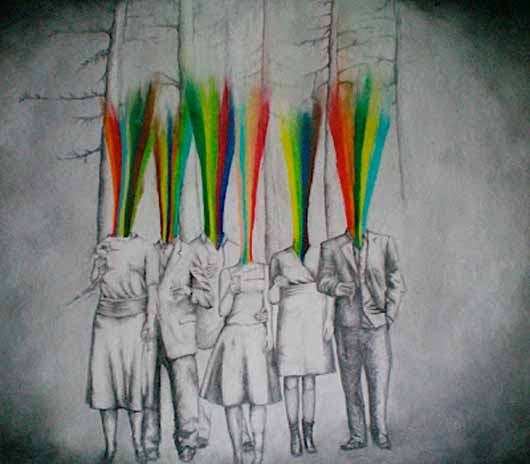
Thus my memories of college remain, unrequited and fading slowly, willfully, in and (mostly) out of reason and consciousness, like the mind's attempt to regroup in the morning after a memorably decadent night. I had a few of these, though most anything was risque for a girl raised in a home where the liquor cabinet shared real estate with the teacups and consisted of my late grandmother's Kirschwasser for Black Forest Cake, and Amaretto for biscotti. These nights were adventures and stumbles and exhibitions of great careless exuberance; the worst repercussions were temporary dizziness or jettisoned digestibles.
College facilitated new forays into prohibited territory and I was always surprised at the intensity with which we grasped at our new freedoms, most often of the imbibed kind. For me, it was also the fashion faux pas. Proud in my calculated sloppiness, I made the nightly post-supper pilgrimage to the library from the dorms decked in fire engine red sweatpants and Birkenstock clogs.
On other nights, I would visit my friend Kyle, who was of a mysterious age and for some inexplicable reason lived in a fraternity. He and I would listen to Thom Yorke and Bartok and then Deirdre and I would visit only to raid the TKE walk-in refrigerator, a Six Flags Marine World to our paltry dorm kitchen. I flush with embarrassment to think how we must have looked, harvesting swiss cheese and beet slices from the good gentlemen's rations.
Our dorm's freshman year were an incredulous bunch: capricious boys, naked and flushed, pummeling each other with snow outside my window; the Idahoan dip connoisseur who banged on our doors at 3 a.m. hollering "hippies wake up" and who, much like Lady Gaga – and doubtless to potential girlfriends' disappointment – couldn't be tamed.
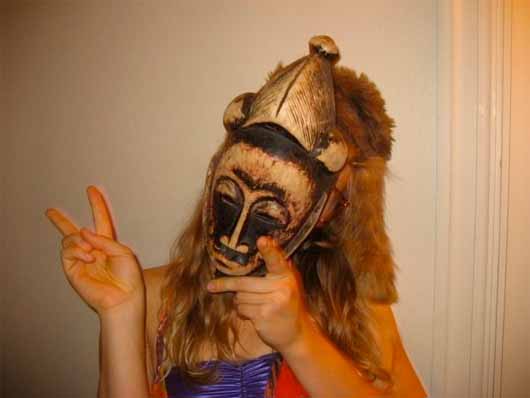
How can so paltry a sum of years yield seemingly endless cascades of fragmented memory? I am someone who finds herself overwhelmed by the cornucopia of infinite and equally-valuable experiences until I find far too much familiarity with Infinite Jest-ian moments: trying somehow to move toward both at once, finally, so that he stood splay-legged, arms wildly out as if something's been flung, splayed, entombed between the two sounds, without a thought in his head.
And so I thrust toward the faded feelings, tangible artifacts, or photographic evidence of life's moments that are gone, gone, gone. Gone is the admissions counselor with the French-sounding last name who encouraged me to apply and reminded me of a Lewis and Clark fur trader. Gone is the piano teacher with a strict kindness who called my home and in his lovely Texas cadence told me how he'd enjoyed my Haydn and Chopin and made sure my piano helped me pay for tuition. Gone is that piano playing, once a daily ritual, often disparaged as drudgery but ultimately another emphatically maudlin ache of loss. Nostalgia for college is like a nostalgia for those we once loved but no longer do; the lovely memories remain, sterile and preserved in a vacuum-sealed container with silica gel packets and a double-lock Ziploc, but can never, even with the archivist's preservative efforts, render the same fresh fragrances they once did.
Perhaps Camus was right and nothing is more absurd (comforting?) than that "divorce between man and his life, the actor and his setting." College is the well-preserved ghost I brace with the ever-unraveling scraps of memory. Yet when the exercise of remembrance seems futile, or runs dry, I think of Doringers.

No longer are there classes, crunching through snow in unfashionable loungewear, teachers in pink tights, symposia on Primitivistic makeup but even the next morning, after the beer has been drank, the last flamin' hot crunch silenced, those recognizable orange stains remain – under fingernails and in the creases of one's mouth – casually hinting at times already lost to the past. When my gait is slowed and my neck goitered what will endure of college but the vestiges of three years' follies and joys and eruditions? Will the spiciest bits, however reluctantly, slowly disappear with the morning's soapy water?
Joanna Swan is the senior contributor to This Recording. She is a writer and artist living in Oakland. She last wrote in these pages about fancies. You can find an archive of her writing on This Recording here. She blogs here and tumbls here.
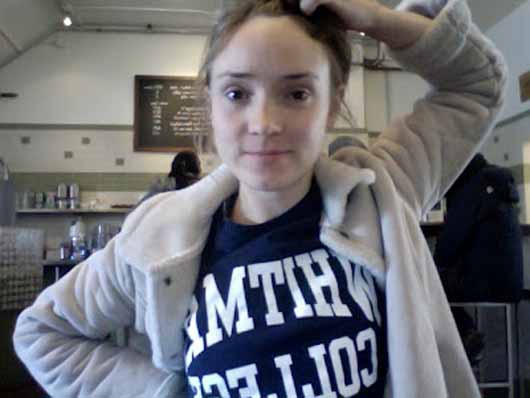
"Jigsaw Falling Into Place" - Radiohead (mp3)
"My Whole World's Coming Apart" - John Maus (mp3)
"Life's Zombies" - Lil B (mp3)
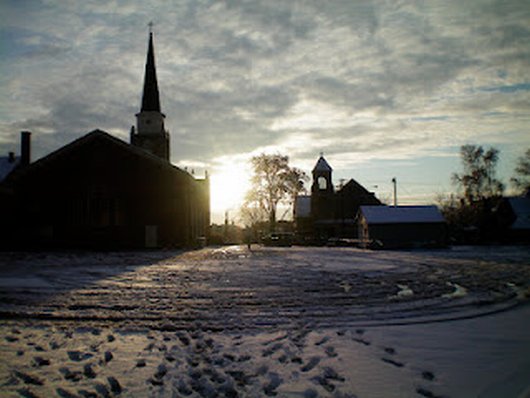
 california,
california,  college,
college,  joanna swan
joanna swan 





























